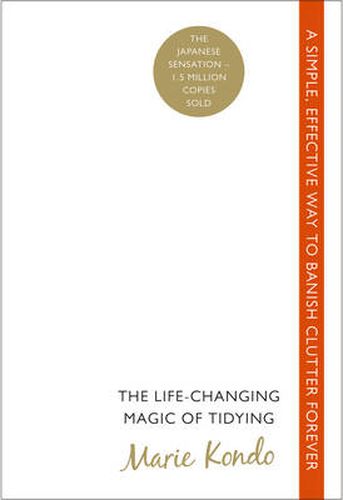The KonMari Method: On The Life-Changing Magic of Tidying
The first thing you need to know about Marie Kondo is that she is insane. The second thing you need to know is that she’ll change your life (sort of).
I bought her bestselling book about tidying, The Life-Changing Magic of Tidying, at the start of the year because I was determined that 2015 was going to be different. I am someone with little to no interest in cleaning, and my boyfriend is a very messy person by nature, so combined, our one-bedroom apartment can get a little out of control. (If a visitor drops by unannounced, we sometimes pretend we’re not home.)
I read about Marie Kondo’s method of tidying and how revolutionary it was, and I thought: ‘This is the answer to all my housecleaning problems – perhaps even all my problems, period.’ After all, Kondo has clients whose lives are completely changed after completing her KonMari Method. My hopes were sky high when I bought the book. I was going to become a better person, and I was going to force my boyfriend to change too!
I read the book aloud to him over the course of a few nights. I’m not going to lie – we laughed a lot. Marie Kondo is intense. She’s appalled that very few people have studied tidying formally (less than 0.5%, she shockingly reveals). As a child, while other kids at school were outside playing she was ‘checking on the content of the mop cupboard’. She would tidy her room obsessively every day after school and monitored her family’s clothing – if she deemed they weren’t wearing something enough, she would secretly throw it out. When she puts her clothes away at the end of the day, she thanks each item, out loud, before putting it in its designated spot. This is a woman who is serious about tidying. (She’s also now such a celebrity in Japan that she gets mobbed on the subway.)
As well as being a highly entertaining read, The Life-Changing Magic of Tidying does have a lot of interesting things to say about keeping your house tidy.
Here are a few snippets of wisdom from the book:
‘Tidying by location is a fatal mistake.’
‘Tidy a little a day and you’ll be tidying forever.’
‘Tidying is a special event… tidying should be done just once.’
‘Put all your clothes in one pile, take them in your hand one by one, and ask yourself quietly, “Does this spark joy?”’
‘Folding is a form of dialogue with our clothes.’
I bravely undertook the special, once-in-a-lifetime KonMari Method clean out of everything. I put every single piece of clothing in the house in a huge pile on the floor in the lounge room and sorted through it all, assessing carefully for feelings of joy. (Admittedly, joy became harder and harder to come across as the day wore on, and the pile remained terrifyingly large.) As a result, I discarded bags and bags of stuff. It felt great. It was very liberating to realise I was hanging on to a lot of clothing for the wrong reasons. We then did the same with our kitchen cupboards, and discovered they were full of unnecessary clutter.
Here’s where I admit I didn’t undertake the KonMari Method properly, because I couldn’t bear to KonMari my books. Kondo has some very strong thoughts on books, including a rule about getting rid of any books you haven’t read yet. Kondo believes if you don’t read a book immediately, then its chance is over and it has to go. Needless to say, I strongly disagree and my bookshelves remain stuffed.
The special KonMari method of folding and storing clothing did change my life – or, at least, it changed how I fold and keep my clothes in my cupboards. I did all of this six months ago, and I’ve stuck to it, mostly. Certainly my clothes cupboards have been kept in much better order, I no longer hang on to stuff I don’t need and I’ve figured out a place for everything in my apartment. Is my house perfectly tidy? No. But it’s not because of clutter anymore – it’s because I hate doing the dishes.


